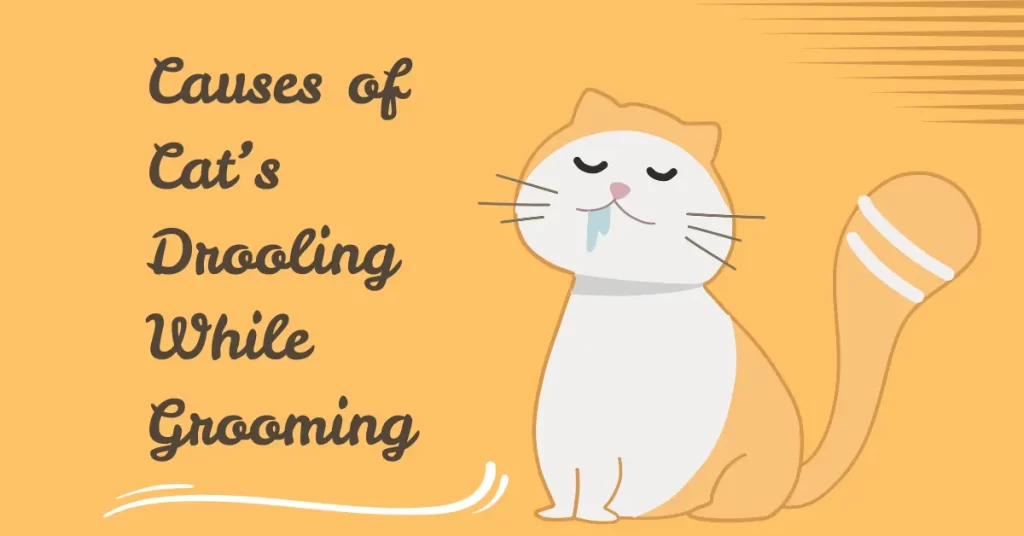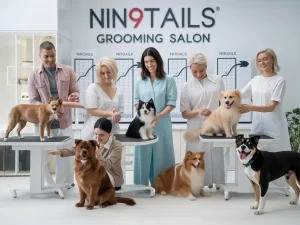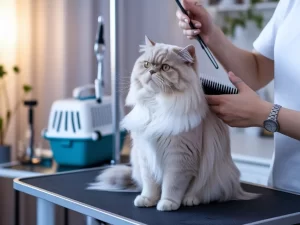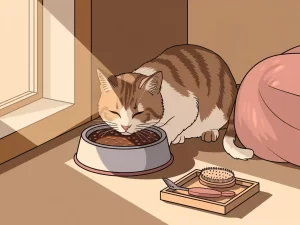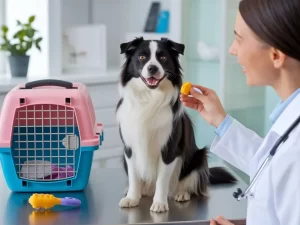Cats are known for their mysterious and sometimes quirky behaviors. If you’ve ever noticed your cat drooling while you pet them, you might wonder why. Unlike dogs, who drool more frequently, a cat’s drooling can seem unusual. However, in most cases, it’s completely normal. This article will explore the reasons why cats drool when you pet them, what it means for their health, and how regular cat grooming plays a role in their overall well-being.
Common Reasons Why Cats Drool When You Pet Them
1. Pure Relaxation and Happiness
Some cats drool as a sign of deep relaxation and contentment. When you’re petting them, they may associate the sensation with comfort, similar to how kittens knead and suckle on their mother’s fur. This response can trigger reflexive drooling behavior, much like a person feeling drowsy and relaxed before falling asleep.
2. Nostalgic Kitten Behavior
Kittens often knead and suckle their mother while nursing, which produces feelings of comfort and security. Some adult cats carry this behavior into their later years, and petting them can trigger these early-life memories, leading to drooling.
3. Overstimulation
While petting is usually a pleasant experience for cats, too much stimulation can make them drool. Some felines become so engrossed in affection that they enter a trance-like state, causing excessive salivation.
4. Dental Problems
While drooling during petting is typically harmless, persistent or excessive drooling could indicate a dental issue such as gingivitis, tooth decay, or an oral infection. If your cat’s drooling is accompanied by bad breath, difficulty eating, or pawing at their mouth, a vet visit is recommended.
5. Nausea or Underlying Health Issues
If your cat suddenly starts drooling excessively, it may be a sign of nausea due to an upset stomach, poisoning, or another medical condition. If you notice other symptoms such as vomiting, lethargy, or a change in appetite, consult a veterinarian immediately.
6. Heat and Stress Factors
Some cats drool when they are stressed or overheated. If your cat starts drooling excessively in hot weather or during a stressful situation, ensure they have access to fresh water and a cool, calm environment.
How Cat Grooming Helps with Oral Health and Comfort
Regular cat grooming plays a significant role in keeping your feline’s mouth and overall hygiene in check. Grooming sessions can help detect underlying dental issues early, remove debris from their fur, and ensure they stay clean and comfortable.
1. Brushing to Prevent Hairballs and Excessive Drooling
Cats groom themselves daily, but long-haired breeds may develop excessive hairballs, leading to nausea and drooling. Regular brushing reduces shedding and minimizes the risk of hairballs.
2. Checking for Dental Problems
A professional cat grooming session often includes inspecting the cat’s mouth for dental issues. Groomers can spot early signs of gum disease, plaque buildup, and oral discomfort, preventing future complications.
3. Stress-Free Grooming with Mobile Grooming Services
Some cats become anxious when visiting a grooming salon. Mobile cat grooming services provide a stress-free experience in a familiar home environment, reducing anxiety and excessive drooling caused by stress.
When to Be Concerned About Cat Drooling
If your cat drools only when purring and being petted, it’s likely a sign of relaxation. However, excessive drooling that occurs outside of petting sessions should not be ignored. You should consult a vet if:
- Drooling is excessive and persistent.
- Your cat refuses to eat or drink.
- There is visible swelling or pain in the mouth.
- Drooling is accompanied by vomiting or lethargy.
- The saliva is thick, discolored, or has a foul odor.
Final Thoughts
Understanding why cats drool when you pet them helps reassure pet owners that, in most cases, it’s a natural reaction to affection. However, monitoring their behavior and maintaining their cat grooming routine ensures they stay healthy and comfortable. If drooling becomes excessive or is paired with other unusual symptoms, a vet check-up is always the best course of action.

